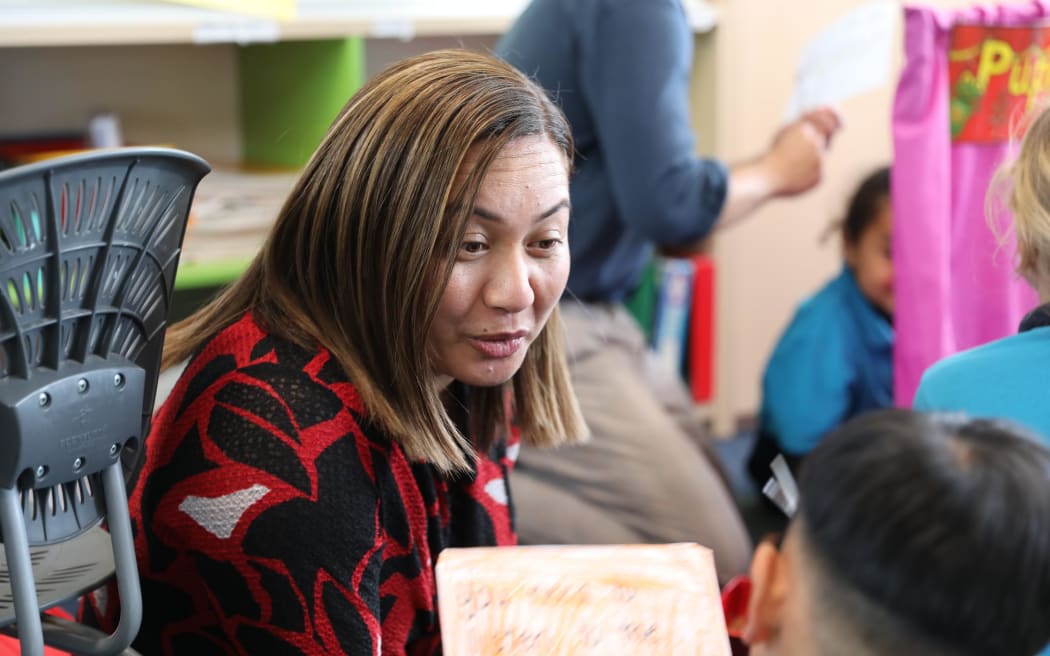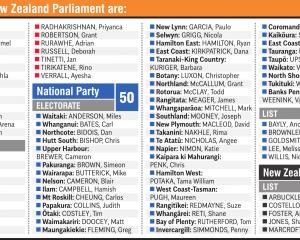
The party proposes expanding the Ka Ora, Ka Ako programme, which provides about a million lunches each week to 230,000 pupils at about 1000 schools around New Zealand.
It is targeted at the 25 percent of schools facing the greatest socio-economic barriers - based on the Equity Index, which replaced deciles at the beginning of 2023.
Party co-leader Marama Davidson said the Greens' policy would see the programme cover all schools with an equity score of 450 or higher, increasing the number of students from 230,000 to 365,000 from the start of the 2024 school year.
The Greens would also eventually pursue expanding the service to all schools.
"Feeding children is essential and I know that many people in Aotearoa understand the basic need to just make sure as a country that no child goes hungry," she told RNZ's Midday Report host Charlotte Cook.
The Labour government's 2023 Budget continued funding for the programme through to the end of the 2024 school year, but the party has so far not committed to continuing it beyond next year.
That's despite party leader Chris Hipkins - then the education minister - touting an interim evaluation of the programme which found "large benefits" for the children including quality of life and mental wellbeing.
Hipkins told reporters on Tuesday Labour wanted to continue with the programme, and planned to provide an update on that soon.
"Certainly within the next couple of weeks we'll set out our plans, but we're very proud of the lunch in schools policy."
A report from Treasury in July, however, found about 12 percent of the lunches were surplus to requirements, as some students could be absent, with about 10,000 lunches left over every day.
National has said it supported the programme overall but wanted to see a more targeted approach, while ACT called it "wasteful spending" and said it should be cut.
Davidson suggested improvements could be made - but said feeding children had to be the priority.
"I'm aware that for the evaluation so far we still need some more time to figure out how we can improve it and make sure it's a good scheme, but first and foremost we just need to feed kids," she said.
"This is a very simple solution that we have more than enough resource to do. "
The Greens' policy document estimated the expanded programme would cost more than $1.1 billion over the next three years, all of which would be paid for from the party's proposed wealth tax.
"We've put out our seven key priorities including the income guarantee and there is enough left over for expanding free school lunches," Davidson said.
"It just shows that the resources are here, we have what we need in Aotearoa - it is just a political decision to open up those resources."
With Labour having ruled out a wealth tax, that political decision could be out of the Greens' hands, however. Davidson argued a stronger party vote would mean a better chance of overriding that.
"What we are saying to people if they want free lunches in schools - that we know will relieve the stresses of parents everywhere in Aotearoa - if people want that they can vote for the wealth tax. No politician gets to rule that in or out."
The policy said the Greens would also make sure the Ministry of Education worked with eligible schools and kura kaupapa to determine if funding was needed for kitchen fit-outs to start providing the service internally.
The party said expanding the programme would create about 1300 jobs in local communities.










